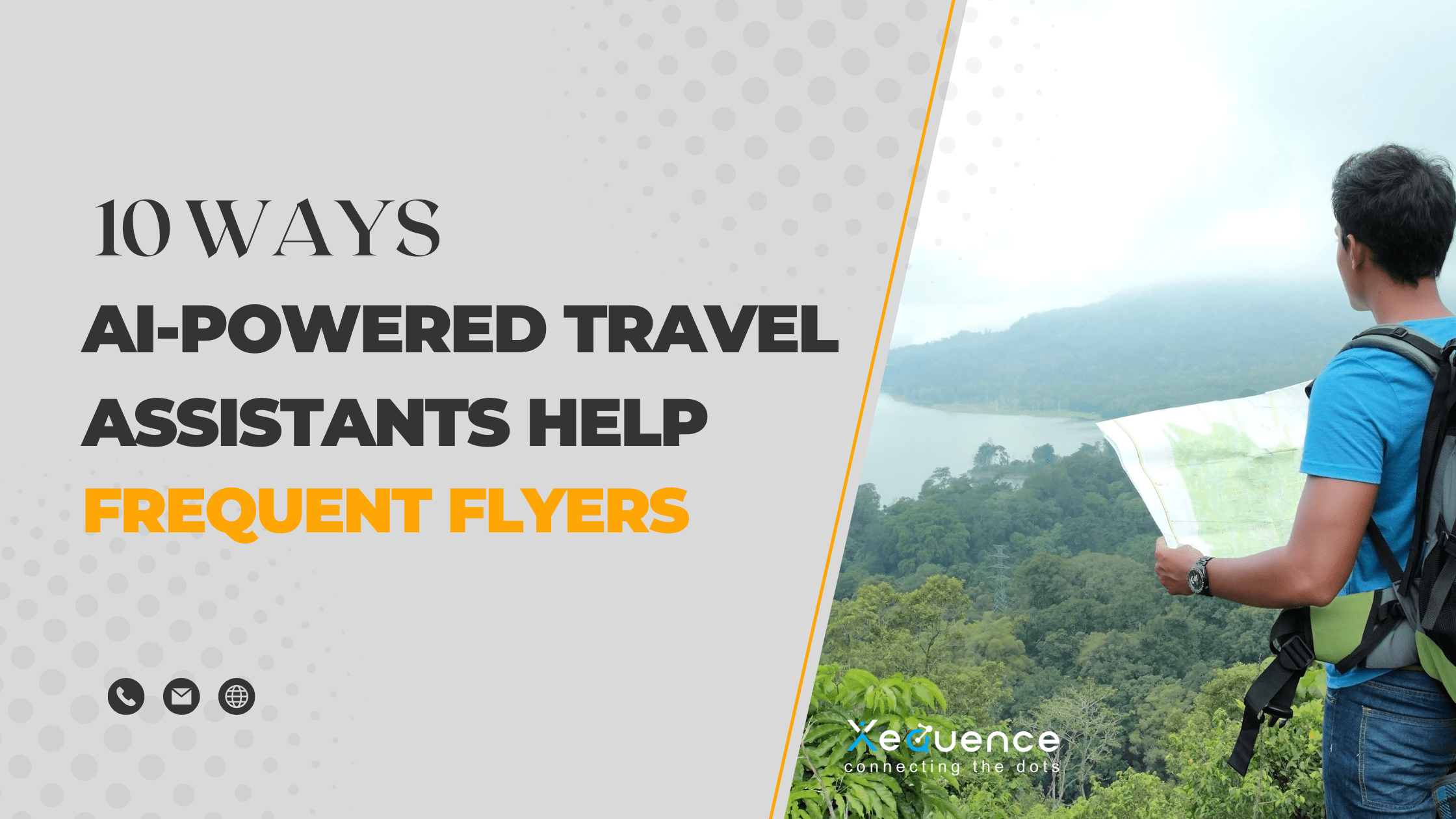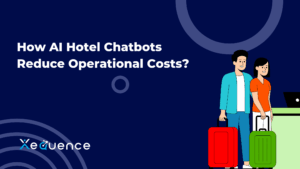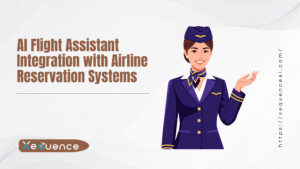- Home
- Artificial Intelligence
- 10 Ways AI-Powered Travel Assistants Help Frequent Flyers
10 Ways AI-Powered Travel Assistants Help Frequent Flyers
- April 23, 2025
- Rajib Kar
- Artificial Intelligence, Gen AI, Guest Experience

10 Ways AI-Powered Travel Assistants Make Life Easier for Frequent Flyers
Artificial intelligence has revolutionized the travel industry by streamlining operations and enhancing customer experiences. AI has become an essential part of modern travel, offering everything from real-time assistance to personalized trip recommendations. Among its most significant advancements are AI-powered systems that analyze user preferences to suggest the best destinations, accommodations, and activities. These systems provide valuable insights into price trends, helping travelers make more informed decisions. AI also boosts efficiency through intelligent chatbots that answer customer inquiries and simplify booking processes. As AI adoption grows, travel agencies must leverage these technologies to remain competitive.
Real-Time Assistance
Travel plans can go awry due to various factors, including booking errors, flight delays, and last-minute itinerary changes. In such situations, AI chatbots provide real-time assistance, ensuring passengers receive up-to-date information instantly. Think of it as having a reliable travel companion available at all times.
In-Room Virtual Travel Assistants
AI-powered travel assistants have evolved beyond trip planning—they now support travelers during their stay. Business travelers attending meetings or conferences can benefit from voice assistants, which allow them to ask questions and receive voice-activated responses. These assistants enable travelers to control various in-room features with voice commands, improving convenience.
Enhanced Duty-of-Care
For business travelers, AI serves as a virtual risk management advisor, assisting employers in fulfilling duty-of-care responsibilities during emergencies. In the event of a natural disaster or unexpected crisis, AI-integrated travel assistants provide instant notifications via email, voice messages, or SMS, allowing travel managers to track employees’ locations in real time. AI-powered tools use machine learning to provide location data based on itineraries, corporate card transactions, and other sources.
Predictive Analytics
AI’s ability to analyze trends and forecast future behaviors is highly beneficial to the travel industry. By identifying patterns in travel bookings, seasonal demand, and global events, businesses can make well-informed decisions about pricing, marketing strategies, and resource allocation.
Streamlined Operations
AI enhances efficiency across the travel sector by automating administrative tasks. From booking flights and accommodations to responding to customer inquiries, AI agents improve workflow while reducing operational costs. Automation allows human employees to focus on more complex tasks that require empathy, problem-solving, and interpersonal communication.
Smart Automated Booking Technology
Intelligent automated reservation systems are transforming how travelers book flights, hotels, and other services. These systems provide instant confirmations, process large volumes of bookings efficiently, and minimize human error. AI-driven solutions also extract data from official identification documents, such as passports, speeding up check-in procedures at hotels and other locations.
Effortless Trip Planning with AI
Artificial intelligence enhances trip planning through automated bookings instant travel recommendations, and personalized itineraries. By leveraging data insights and predictive analytics, AI helps businesses optimize operations while improving the customer experience.
Virtual Reality (VR) Travel Experiences
AI-enhanced VR platforms allow frequent travelers to enjoy immersive experiences from their homes or offices. Users can take virtual tours of hotels, meeting venues, and tourist attractions before booking, enabling business travelers to make faster, more informed decisions while saving time and money.
Anticipating Traveler Needs
Travel agencies use predictive analytics to anticipate customer needs and offer proactive solutions. By analyzing historical data, market trends, and consumer behavior, businesses make informed decisions about pricing strategies and occupancy optimization. Hotels adjust room rates based on demand, while airlines modify ticket pricing to remain competitive.
Biometrics for Security
Security is a top priority for travelers, especially in high-traffic areas like airports. AI-powered biometric verification systems, including facial recognition, fingerprint scanning, and iris detection, enhance security while streamlining identity verification. In addition to reducing fraud risks, biometric technology simplifies security checks and could eventually replace traditional hotel keys.
Conclusion
AI is transforming the travel industry by addressing frequent flyers’ concerns and improving overall efficiency. Innovations such as virtual reality, predictive analytics, intelligent travel assistants, and automated booking systems contribute to seamless, stress-free travel experiences. As AI continues to evolve, business travel will become more intelligent and enjoyable, benefitting both travelers and service providers alike.
Recent Posts
Newsletter
Get regular updates on data science, artificial intelligence, machine
You may also like

AI Travel Assistants: The New Personal Travel Planners

5 Things an AI Travel Assistant Can Do in Seconds

How AI Hotel Chatbots Reduce Operational Costs?




